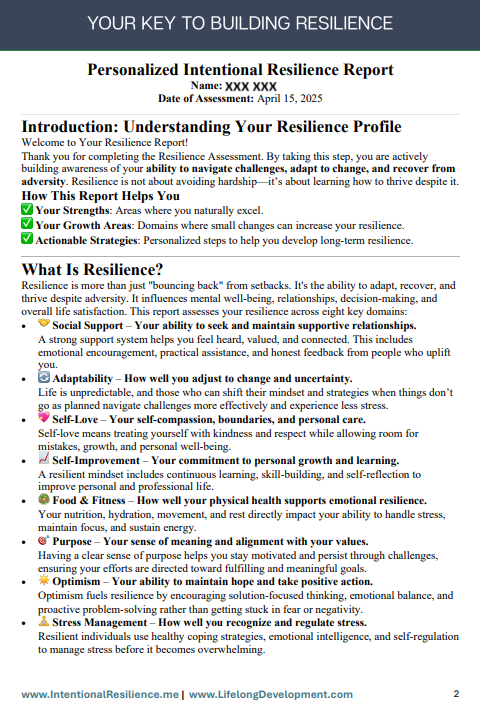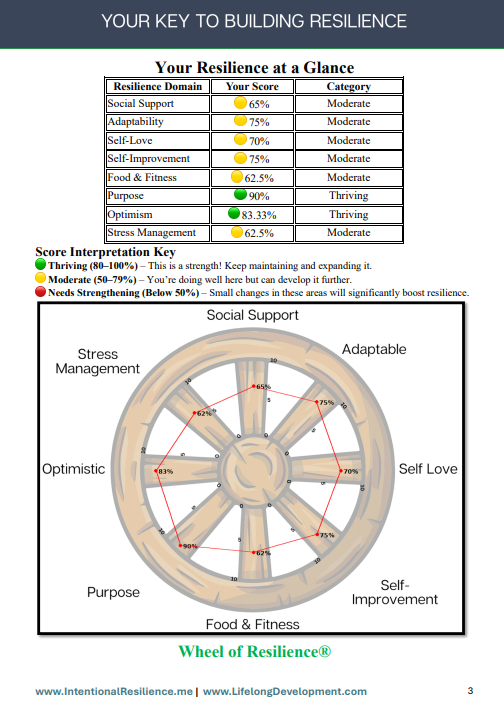
Resilience is more than just "bouncing back" from setbacks. It's the ability to adapt, recover, and thrive despite adversity. It influences mental well-being, relationships, decision-making, and overall life satisfaction. This report assesses your resilience across , eight key domains.
Your ability to seek and maintain supportive relationships. A strong support system helps you feel heard, valued, and connected. This includes emotional encouragement, practical assistance, and honest feedback from people who uplift you.
How well you adjust to change and uncertainty. Life is unpredictable, and those who can shift their mindset and strategies when things don’t go as planned navigate challenges more effectively and experience less stress.
Your self-compassion, boundaries, and personal care. Self-love means treating yourself with kindness and respect while allowing room for mistakes, growth, and personal well-being.



Your commitment to personal growth and learning. A resilient mindset includes continuous learning, skill-building, and self-reflection to improve personal and professional life.
How well your physical health supports emotional resilience. Your nutrition, hydration, movement, and rest directly impact your ability to handle stress, maintain focus, and sustain energy.
Your sense of meaning and alignment with your values. Having a clear sense of purpose helps you stay motivated and persist through challenges, ensuring your efforts are directed toward fulfilling and meaningful goals.
Your ability to maintain hope and take positive action. Optimism fuels resilience by encouraging solution-focused thinking, emotional balance, and proactive problem-solving rather than getting stuck in fear or negativity.
How well you recognize and regulate stress. Resilient individuals use healthy coping strategies, emotional intelligence, and self-regulation to manage stress before it becomes overwhelming.